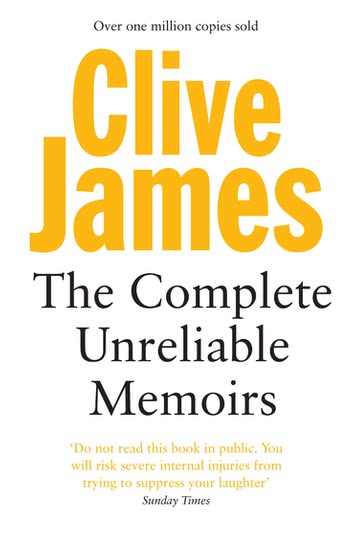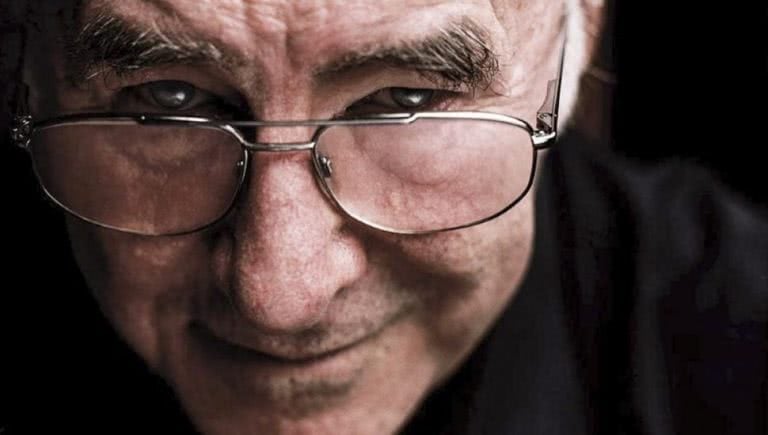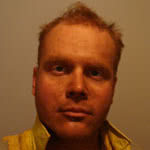The passing of Clive James has been long awaited, by none moreso than himself. The man called his own demise early and often; in fact, he wrote his own obituary, and in typical Jamesian fashion told everyone that it would be better than anything they could do.
News of his death this morning, although not unexpected, still came as a surprise. He was one of those men destined to keep on kicking. He bucked all trends, relying on sheer authenticity to carry him to success, against the slings and arrows of those with whom his style altogether failed to resonate.
Clive James holds a special place in my heart because I grew up with him. I remember his droll, acerbic monotonal delivery, instructing us from a black-and-white TV about the ways of a strange new world, and indeed he favoured the strange, being such a bird himself. And yes, I did say a black-and-white TV – we did not get a colour one until I was about seven years old – we may have been the last family in Australia to get one.
A memory that stands out from early on (in my life, not his) regards his proselytic ‘Postcard from New York’. There was no better place than the capital of the world to examine up close the manifestation of the new and the strange, and his recalcitrant viewpoint laid the groundwork for many comedians, who would later try to ape his observational tour de force.
Clive James – Postcard from New York
In the early 90s, many will remember seeing him on Manhattan Avenue, perusing the wares on offer in a self-defence shop. Or was it a sex shop? Either, either. The centre of the known world was a dangerous place, so he’d been told, and as a ‘nervous man in New York’ James felt it would be wise to arm himself accordingly – to the teeth.
The store attendant carefully guided James through an understanding of the shop’s raison d’être, and the risks on the street, helping him to appreciate the virtues of flak jackets, rear-vision sunglasses, and latest developments in pepper spray. His travelogue was certainly the first place I ever heard of such things.
Love Film & TV?
Get your daily dose of everything happening in music, film and TV in Australia and abroad.
Knowing that, from thousands of miles and several oceans away, he’d been able to reach and educate a small boy in an obscure Barossa Valley backwater about how to fill an assailant’s eye-sockets with zombie-green expanding foam probably couldn’t have gotten much closer to his secret, subversive goals.
Feeding us the new and the strange in such a way, time and again, proved the unofficial poet laureate of Australia was a consummate journalist, and a damned good reporter.
Clive James had a gift for the succinct, and nothing could be more succinct than his words in the interview playing as I type: “I am a writer, not a performer.” He was a man after my own heart, or rather, the other way ‘round.
Barely out of my teen-age, when I left the clutches of the hills above Blackwood and trundled down them to Adelaide University to learn what it is like to commute and spend one’s days in the big city (Yes, Adelaide, ha-ha, very funny, laugh it up assholes), it was a new and very good friend who passed me the first volume of James’ memoirs.

These innocent-looking pages charted his childhood, his early experiences in Sydney, and his own intellectual awakenings in the heady, sexual atmosphere of university life.
Reading his thoughts and feelings and memories about what it was like to move out of one’s younger years and into adulthood, and learning the ways of the pen, learning anew the love of the Word; these were things that helped me through my first year, and ever on.
I saw his example and wanted to follow it, there and then, and there would be several such writers for me, but Clive James was the one who first taught me about Australia’s least-favourite school of thought: intellectualism. He was also the one who taught me to ignore anyone who somehow thought that it wasn’t cool.
In my own case, as with his, there were old friends who belittled my academic pursuits. It has been reassuring over the years to see them come around and appreciate what it is that we writers do. Some do not, and that can remain a sad point, but then I just remember Clive James, and how he went through the same thing, and that some people never come around, and that those people can just fuck right off.
Vale, Clive. May God lend you his ear forever more: May you chew it off with your poems so that he leaves the rest of us alone.


































